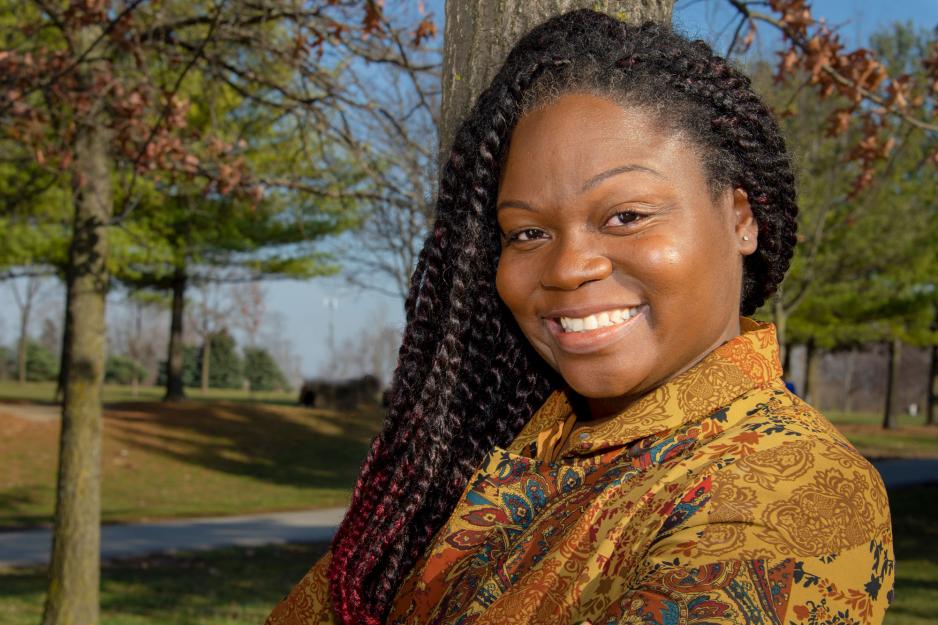For Black Futures Month, we’re catching up with George Brown College graduates to celebrate their success and to find out how they’re continuing to chart an inspiring path forward.
Juline Sutton runs an online community that provides a safe space for Black women to discuss issues related to mental health, and in 2022 she’s looking to grow this online community to include women in the Toronto shelter system.

Sutton launched Black Women United (Instagram @blacknhealing) in December 2020 with two fellow students at the School of Community and Social Services. What started as a project for the school’s Social Innovation Hub — an alternative work placement opportunity to help students become social entrepreneurs — continues after graduation and offers monthly online sessions on a range of topics such as financial literacy, health and wellness, and seasonal depression.
“I think Black women experience mental health a bit differently because there’s this stigma within our community that’s associated with it,” Sutton said. “It’s important to sit down with a group of Black women and for them to say it’s ok to feel what you’re feeling, and there are resources out there to help with what you’re going through and to not just sweep it under the rug.”
Funding is the key to taking Black Women United to the next step, Sutton says.
“I’d like to connect with shelters and offer support to women in the shelter system,” she said, noting she has a meeting this month with a Toronto organization that serves people experiencing homelessness. She also worked in the shelter system after graduating from George Brown.
Helping people transition to stable housing
Sutton graduated from the Social Service Worker program in 2021 and now works as a supportive housing worker helping people with addictions and mental health challenges. She works with 15 clients, helping them manage their addiction using a harm reduction approach and supporting them in their day-to-day lives (conducting wellness checks and ensuring medications and meals are taken) as they transition to stable housing.
“I think George Brown did an amazing job of preparing me for what to expect,” she said. “When you’re in the field seeing it, it’s like oh, that’s what (professor) Natalie Wood or (professor) Griffin Epstein were talking about.”
A future of leadership in social work
Sutton believes her passion for her work will help her transition into leadership roles within the sector. And the next goal on the horizon is a master’s degree.
“I'm hoping that I'll be able to take my experiences further by getting into leadership and seeing how I can implement some of those anti-oppressive practices that I've learned into the workforce,” she said.
